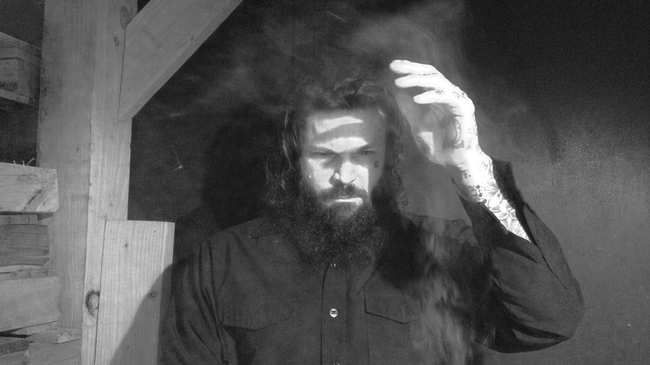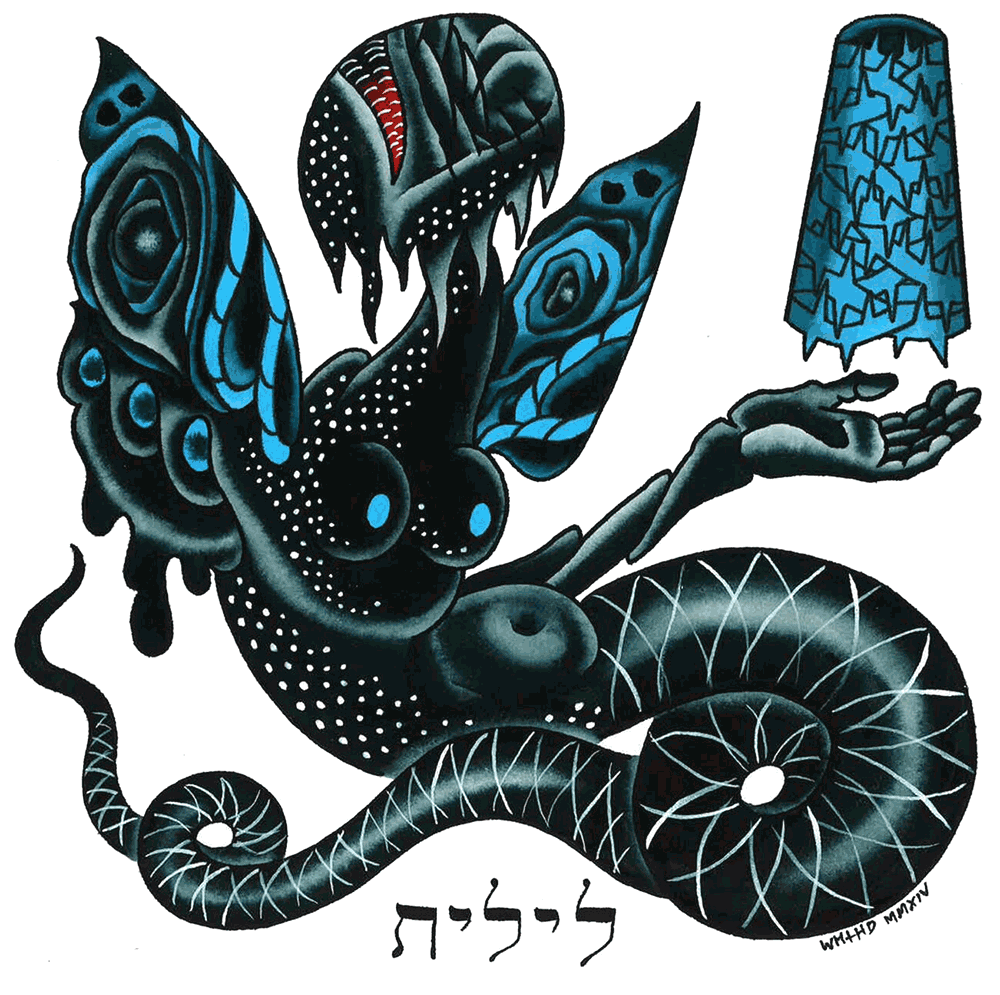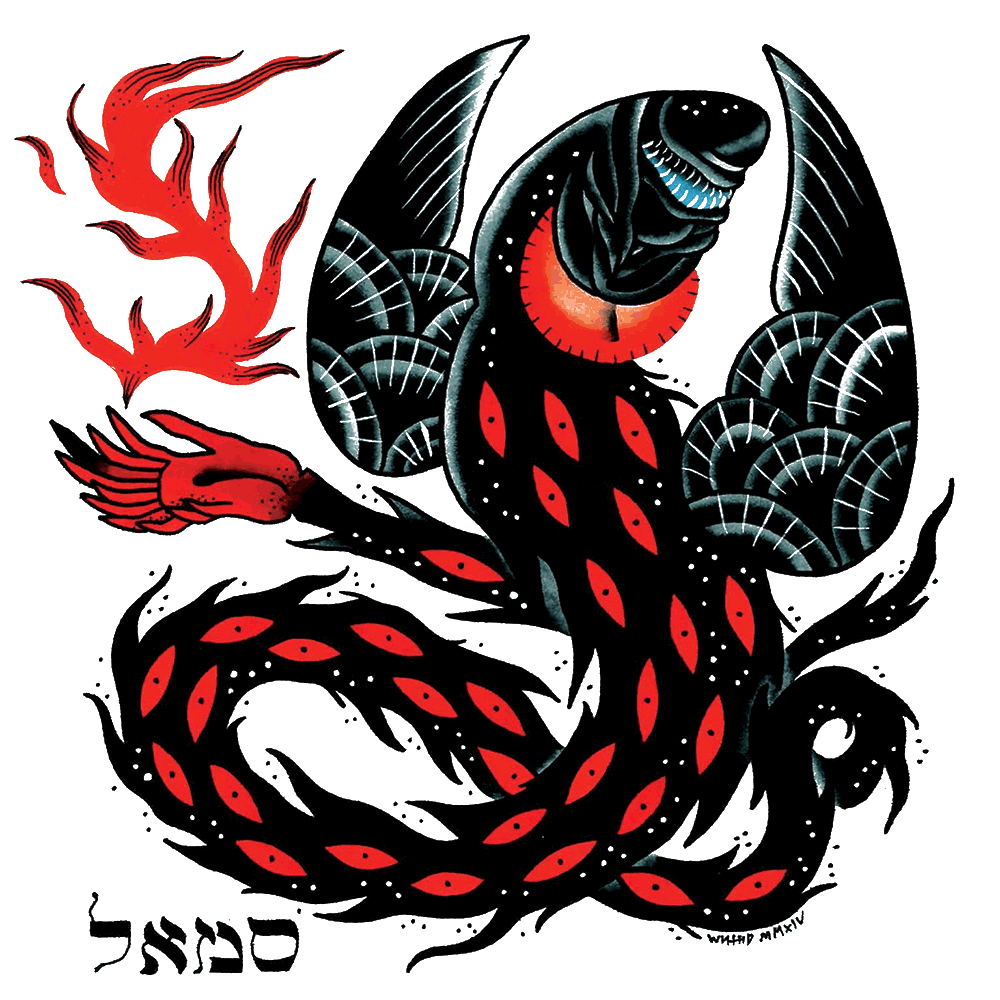Leviathan
2018-07-18
by Niklas Göransson
Jef Whitehead is an American musician and visual artist, known mostly for his work with black metal solo-project Leviathan – and with its 20th anniversary approaching, we delve into the darkness drawn upon by his creative expression.
This is an excerpt from the full article – which is twice as long, significantly more in-depth, and published in Bardo Methodology #3. The issue features SVARTIDAUÐI, VOMITOR, DARKTHRONE, Philip Anselmo, ALTAR OF PERVERSION, DESIDERII MARGINIS, Paolo Girardi, WATAIN, Perra Karlsson, PORTAL, KING DUDE, LEVIATHAN, IMPETUOUS RITUAL, and Bobby BeauSoleil: Lucifer Rising. Since this conversation took place, Jef has had to deal with a few issues related to his record store and, as a result, the recording of “Die to This” will have to be postponed.
– These last three years have probably shown me the most joy and the most devastation I’ve ever felt. They’ve seen me in places I never thought to be – a father and home-owner, all the while trying to run several businesses with my wife, Stevie. We also have a project together, DEVOUT, which we’re planning on releasing through our label. As for LEVIATHAN, I’m hoping to get a new record out during 2018; most of the music is already written and I’m working on some lyrics. The title will be “Die to This” which, besides the obvious connotations, also delves into the idea of gradually dying to oneself, one’s mind, this world, and so on…
After having recorded the last two albums of LVTHN – as the project is also known – in a proper studio with qualified professionals operating the equipment, Jef has decided to revisit his trusty old cassette four-tracker.
– In what might be deemed a twentieth anniversary effort, I’ve decided that it’s important to go back and reinvestigate where my artistic expressions through LEVIATHAN began – completely self-contained creation. Right now, I have a lot of material in my head that I couldn’t possibly record in this fashion; still, I really want a return to genesis with the filthy dilapidated sound that attracted me to this musick in the first place. All I need is the gear and solitude to complete it
Jef says that for LVTHN to be gratifying in any way, he must at least try to incorporate previously unexplored musical elements when composing.
– These ideas might not be ground-breaking for the genre, but they need to be new to me personally… which always happens naturally either way. I don’t have a formula per se, so if there’s ever been any kind of LEVIATHAN sound, it’s been entirely accidental. I’m always trying to create musick that I’d want to hear, to have it go places I’d want to be sent myself. We live in an escapist society – social media, television entertainment, pornography, video games, and so on… everyone seems to have a constant need to be someone else, or be anywhere except where they are at any given time. Oftentimes, musical composition will ground and reassure me of my place in the world and who I am. Although I’ve become busier and busier in life, I make LEVIATHAN out of necessity; it’s something that soothes while extracting.
After twenty rather eventful years of LEVIATHAN – what are your strongest memories?
– Walking through San Francisco and calling my answering machine when I had an idea, humming into the receiver so I could learn and record it once back home again. Upon finishing demo number six, Andee Conners of Aquarius and tumult Records approached me about doing a release on his label. I was putting out my twelfth demo by the time he was ready, so it ended up as a double-disc called “Verräter” (2002). I had to pretty much keep LEVIATHAN to myself at work around this time, because tattooers in the late 90s to early 2000s didn’t get it yet. Tattoo artists pretty much universally have shit taste in music. Then there are the many collaborations – the splits with SAPTHURAN and XASTHUR being personal favourites. The former was my first time using acoustic drums, and what a massive difference that made! I also remember working with Drew Webster and Daniel Voss… and how effortless working with Daniel was. He’s an amazing musician in his own right with impeccable taste. Then of course, doing “True Traitor…” (2011) and the severity of my life during 2010 to 2012. I also think of the insane amount of crescent icons I’ve gotten to tattoo on people, and how many wear that symbol on their skin worldwide.

I read that Jef has a background as a sponsored amateur skater in San Francisco. I’m trying to visualise the crossover from that subculture into suicidal black metal.
– This question makes no sense whatsoever, as the one thing has nothing to do with the other. Like many people here on this planet, I’ve struggled with deep depression for well over half my life. Looking back, I feel as if my earliest lyrical content was perhaps a bit ham-handed and crude but I still stand behind the music. Having been drawn to darker and… well, for lack of a better term – sadder music and chord progressions, everything about it just made perfect sense to me. I’d never felt such a visceral and energy-filled response to any kind of musical expression as when I first heard the hate-filled and harrowing sounds of black metal.
This was back in 1996, when a co-worker brought the blackened metal to his attention.
– I’ll never forget the way it made me feel – how quickly I became utterly obsessed with its ferociousness and depths of absolute despair. Once I’d taken up playing myself, I was completely addicted to using my Tascam 424 four-tracker at every single chance I had. I loved the occulted mysterious images black metal had to offer – the celebration of Him, the first to rebel. The closed and tight-knit ‘those who know don’t tell, those who tell don’t know’-mentality… and the cracking of said codes.
Jef says that even though the genre seems to be more popular than ever at this moment, there still only seems to be a select few who really grasp its core spirit.
– We live in an age of voyeurism and emotional promiscuity. If you’d told me in the late nineties that ‘black metal’ bands would be bombarding both social media followers and other musicians – ones they think will grant their ‘big chance’ or whatever – with their half-written songs, generic album art, and videos of them ‘jamming’… I don’t think I’d have believed it. All the mystery is sucked right out. It seems to have become a hobby or merely a way for them to get small dopamine feel-goods by way of likes and praise from people they’ll never meet. With the steady influx of hardcore kids and emo-people in this genre, ‘black metal’ nowadays has become a watered-down joke of its former self.
As have many other musicians in these pages, Jef despairs at the contemporary climate of metal – what he describes as a constant eagerness to take offence at any given moment.
– Crawling into a pit of snakes and whining about getting bit is just showing your ass. If it offends you, it’s not for you – but don’t bring your political leanings and morals into an arena that’s already well-established and doesn’t need you. I’m not of the belief that everyone should be careful not to offend anyone else and ‘massage’ life into one another. Life is life and the freedom of expression in black metal, no matter what the sentiments may be, was one of the many things that drew me to it in the first place. Our store here in Portland, Devout Records, ended up on some idiotic online list over ‘where white supremacists hang out’. Pretty fucking stupid and obviously virtue-signalling; we were joined by another record shop, a couple of music venues and… oddly enough, an intersection also made this list.
What, like a white power street corner?
– Yep, that’s exactly right – literally two streets intersecting. There’s been a buzz about antifa supposedly coming to ‘smash the store up’ – it’s all very silly and indicative of folks trying too hard.

Reading past interviews, I noticed Jef express a somewhat scornful attitude towards black metal bands who seek darkness only in the abstract. I’m wondering if such inclinations might be borne from having weathered more than his fair share of personal hellfire in the real world.
– Not exactly sure what you mean by the ‘abstract’… but as of late I mostly take issue with attempts at conveying purely ‘good’ or ‘positive’ vibes in black metal. To me, that’s fucking stupid and has no place. I’m still of the belief that black metal centres around Satanism and misanthropy. It is musick of the spirit; an expression of darkness, either within oneself or one’s surroundings. When I look around, watch the news, read about history, or generally observe how man treats one another – I do concede to the possibility of an unseen darkened ‘force’.
Jef says he wholeheartedly believes in something our human senses can only feel, not fully articulate.
– I go back and forth with just exactly what I myself am doing with this idea: whether I’m celebrating or trying to somehow deal with and make sense of it. However, of course I believe in the power of love… but within that there’s always tension, duality, doubt, and inevitable pain. Having lived most of my life in a very black-and-white fashion, it’s always been either one way or the other. Advancing in years, I’ve also come to realise there’s plenty of grey area and a myriad of paths and directions to just about everything under the sun.
Speaking of which – how did this suicide business come to be a primary theme in your early work?
– Eh… okay, my first full-length is called “The Tenth Sub-Level of Suicide” (2003), on which the title track delves into the many decisions and levels leading to the end result of self-extinction. I’ve written a number of lyrics revolving around this particular subject but calling it a ‘primary theme’ is a sophomoric statement that lends to little research having been done on my lyrical content. Even a cursory glance at the song titles on that record will reveal a myriad of themes: war, depravity, hatred, paranoia, severe depression, demons – personal and metaphysical – apparitions, and so forth.
Ah, alright – that was indeed a poor choice of term. I might have been subconsciously influenced by these suicidal-depressive whatever associations.
– I wrote that album way before ‘journalists’ came up with this asinine ‘depressive suicidal black metal’ sub-subgenre. I hate the fact that I’ve been lumped in with this. Record companies and metal media – both categories comprised mostly of people incapable of making music themselves – desperately need little folders and genre-boxes to place things into; the labels to sell their products and smartass journalists to sound clever.
Whilst admittedly, upon closer inspection, the lyrics are not primarily about suicide, it should be pretty uncontentious to note that there’s some colourful stuff in there. I’m curious if Jef’s perspective on lyrical topics such as those he mentioned has changed now that he’s a father. Does a band who becomes somewhat prolific in an underground music scene have any kind of responsibility for their message? I think we can all agree that black metal is a very potent tool, with documented capabilities of spurring susceptible men and women into extreme actions.
– The older I get, the more responsible I feel for a lot of things – mostly what I will and won’t tattoo on folks. But being someone who feels most comfortable when alone as well as having dealt with crippling anxiety and depression, it’s entirely natural for me to express this musically – what people then do with it is their own responsibility.
I remember reading that METALLICA received tonnes of letters from fans saying how “Fade to Black” helped them in their struggles with suicide and self-harm, which is why I’m wondering if Jef has heard similar sentiments.
– Over the twenty years I’ve done LEVIATHAN, I’ve had folks come to me with everything from ‘my friend hung himself and had “The Tenth Sub-Level…” playing on repeat when he was found’ to testimonials of how my music helped people through some majorly difficult shit. I’d like to think that I’ve put musick and words to what they’re feeling. I was once told that the reason a certain piece of music or chord progression makes you feel a certain way – why it takes you down or causes your heart to break – is because of the way said tones reverberate with our bodies and minds. Whether true or not, it’s something that’s always stuck with me.

This is an excerpt from the full article – which is twice as long, significantly more in-depth, and published in Bardo Methodology #3. The issue features SVARTIDAUÐI, VOMITOR, DARKTHRONE, Philip Anselmo, ALTAR OF PERVERSION, DESIDERII MARGINIS, Paolo Girardi, WATAIN, Perra Karlsson, PORTAL, KING DUDE, LEVIATHAN, IMPETUOUS RITUAL, and Bobby BeauSoleil: Lucifer Rising.



